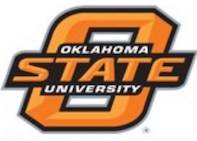 A new study by Kimberly Houser, an assistant professor of legal studies in the department of management in the College of Business at Oklahoma State University, argues that using machine decision-making through artificial intelligence (AI) can remove unconscious bias and “noise” from the hiring and promotion process and begin making the workplace reflect a diverse society.
A new study by Kimberly Houser, an assistant professor of legal studies in the department of management in the College of Business at Oklahoma State University, argues that using machine decision-making through artificial intelligence (AI) can remove unconscious bias and “noise” from the hiring and promotion process and begin making the workplace reflect a diverse society.
Houser’s research shows that AI could make the hiring process blind to gender and race and result in the best people hired for jobs, and more diversity. “We have an industry dominated by White males from universities like Stanford, MIT, Harvard, Yale and Cornell,” Houser said. “When you have a male from Stanford interviewing a group of people, they tend to like males who graduated from Stanford. It’s called affinity bias and its unconscious. You’re not aware of it as a bias and you’re not sure why, but you think the male Stanford graduate is best for the job. It is not a conscious effort to ignore everyone else.”
“Research has shown that if you take race and gender off of resumes, more women and minorities get interviews and are hired,” Houser added.
But using AI cannot totally eliminate bias without other fixes, Houser found. This is due to the fact that the predominantly White, male programmers who write programs introduce biases into their algorithms resulting in machines “learning” that biases are the accepted norm. The key is to make sure both the data sets used and the humans involved in creating the AI are a diverse population to begin with.
The study, “Can AI Solve the Diversity Problem in the Tech Industry? Mitigating Noise and Bias in Employment Decision-Making,” will be published in the Stanford Technology Law Review. It may be accessed here.

